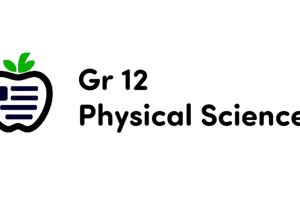Podcast
Questions and Answers
What must be true for an object to remain stationary and in equilibrium?
What must be true for an object to remain stationary and in equilibrium?
- The object must always have a net force acting on it.
- The forces acting on the object must be greater than the mass.
- The object must be moving at a constant speed.
- The resultant force acting on it must be zero. (correct)
The horizontal component of the tension in cable X is negative when the pot is stationary.
The horizontal component of the tension in cable X is negative when the pot is stationary.
True (A)
What is the resultant force in the y-direction when the vertical forces sum to 2.24 N?
What is the resultant force in the y-direction when the vertical forces sum to 2.24 N?
2.24 N up
The resultant force acting on an object in equilibrium must equal _____.
The resultant force acting on an object in equilibrium must equal _____.
Calculate the resultant horizontal force based on the forces given: 6N at 40° and 8N at 25°.
Calculate the resultant horizontal force based on the forces given: 6N at 40° and 8N at 25°.
Match the force components with their calculated value:
Match the force components with their calculated value:
What is the angle θ when the vertical resultant is 2.24 N and horizontal resultant is -2.65 N?
What is the angle θ when the vertical resultant is 2.24 N and horizontal resultant is -2.65 N?
What is the overall resultant force when the net vertical and net horizontal forces are combined?
What is the overall resultant force when the net vertical and net horizontal forces are combined?
What is the result of applying a downward force while pushing an object?
What is the result of applying a downward force while pushing an object?
When pulling an object, the normal force is always less than the gravitational force.
When pulling an object, the normal force is always less than the gravitational force.
What is the vertical component of a 55 N force acting at an angle of 60°?
What is the vertical component of a 55 N force acting at an angle of 60°?
The opposite of adding two forces is ________ a force into its components.
The opposite of adding two forces is ________ a force into its components.
Match the forces with their correct components:
Match the forces with their correct components:
When two children pull a go-kart, and one exerts a 30 N force, what is a possible value for the component of this force that is acting forwards, if it makes a 30° angle with the horizontal?
When two children pull a go-kart, and one exerts a 30 N force, what is a possible value for the component of this force that is acting forwards, if it makes a 30° angle with the horizontal?
Calculate the weight of an 8 kg flower pot.
Calculate the weight of an 8 kg flower pot.
What is the maximum force of static friction when the coefficient of static friction is 0.75 and the mass of the object is 700 kg?
What is the maximum force of static friction when the coefficient of static friction is 0.75 and the mass of the object is 700 kg?
The applied force of 5500 N is sufficient to move the sled with a maximum static friction of 5145 N.
The applied force of 5500 N is sufficient to move the sled with a maximum static friction of 5145 N.
What is the coefficient of static friction if the force required to move a 2 kg brick is 11.8 N?
What is the coefficient of static friction if the force required to move a 2 kg brick is 11.8 N?
The normal force on an object is also known as the ______.
The normal force on an object is also known as the ______.
If a 4 kg object requires a 20 N force to start moving, what is the magnitude of the static friction?
If a 4 kg object requires a 20 N force to start moving, what is the magnitude of the static friction?
The kinetic friction is always greater than static friction.
The kinetic friction is always greater than static friction.
What is the formula used to calculate the coefficient of kinetic friction?
What is the formula used to calculate the coefficient of kinetic friction?
Match the following forces with their definitions:
Match the following forces with their definitions:
What causes parcels to slide across the seat when a car turns a corner?
What causes parcels to slide across the seat when a car turns a corner?
When a bus accelerates, passengers are pushed forward due to inertia.
When a bus accelerates, passengers are pushed forward due to inertia.
What is the effect of a rocket's engines being switched off in space?
What is the effect of a rocket's engines being switched off in space?
The relationship between force, mass, and acceleration is described by _____ law.
The relationship between force, mass, and acceleration is described by _____ law.
Match the following terms with their definitions:
Match the following terms with their definitions:
If a force of 2 N is applied to a 1 kg mass, what will happen when 10 N is applied to a different 1 kg mass?
If a force of 2 N is applied to a 1 kg mass, what will happen when 10 N is applied to a different 1 kg mass?
Mass does not affect acceleration when a constant force is applied.
Mass does not affect acceleration when a constant force is applied.
What two variables affect acceleration in the trolley experiment?
What two variables affect acceleration in the trolley experiment?
What is the value of the kinetic friction coefficient (μK) when a force of 30 N causes a block to accelerate at 2.5 m/s²?
What is the value of the kinetic friction coefficient (μK) when a force of 30 N causes a block to accelerate at 2.5 m/s²?
According to Newton's Third Law, action and reaction forces act on the same object.
According to Newton's Third Law, action and reaction forces act on the same object.
What is the acceleration of a block pulled up a frictionless surface with a force of 7200 N, given a mass of 600 kg?
What is the acceleration of a block pulled up a frictionless surface with a force of 7200 N, given a mass of 600 kg?
When a person walks, their foot exerts a force backwards on the floor, which is called _____ force.
When a person walks, their foot exerts a force backwards on the floor, which is called _____ force.
Match the following scenarios with their corresponding action and reaction pairs:
Match the following scenarios with their corresponding action and reaction pairs:
If a 3 kg block slides down a rough inclined plane with a frictional force of 15 N at an angle of 50°, what is the acceleration of the block?
If a 3 kg block slides down a rough inclined plane with a frictional force of 15 N at an angle of 50°, what is the acceleration of the block?
A rocket can be propelled in a vacuum based solely on the reaction of gases escaping from its combustion chamber.
A rocket can be propelled in a vacuum based solely on the reaction of gases escaping from its combustion chamber.
What is the net force acting on a block if the applied force is 30 N and the friction force is 15 N?
What is the net force acting on a block if the applied force is 30 N and the friction force is 15 N?
Flashcards are hidden until you start studying
Study Notes
Pushing and Pulling
- Pushing increases the normal force since the vertical component of the pushing force acts in the same direction as gravity
- Pulling reduces the normal force because the vertical component of the pulling force opposes gravity
- The normal force is greater than the force of gravity when pushing
- The normal force is less than the force of gravity when pulling
Finding the Components of Forces
- To resolve a force into its components, find its component in a certain direction
- The components of a force are normally at 90 degrees to each other
- For a force R with an angle ϴ with the horizontal, the vertical component is R sinϴ
- For a force R with an angle ϴ with the horizontal, the horizontal component is R cosϴ
Resultant of Multiple Forces using Components
- To resolve a force into its horizontal and vertical components, use trigonometry
- To find the net force, find the vector sum of all the x-components and y-components
- The resultant (net) force is the vector sum of the x-components and y-components
Newton's Laws
- A force is a push or pull that causes or tends to cause a change in the state of rest or motion of a body
- Forces do not always cause motion; they may be in equilibrium with an opposing force like friction
- A force can act even if there is no change in motion
- Galileo's experiment shows that a ball rolling down a slope accelerates due to gravity
- If a car goes around a corner, the parcels slide across the seat in the opposite direction because they continue to travel in a straight line at constant velocity due to inertia
- When a bus accelerates forwards, the passengers are 'jerked' backwards because they continue at constant velocity due to their inertia and appear to move backwards relative to the bus
- A space rocket can continue to move at constant velocity in space even with their engines off because there are no friction forces to slow it down
Newton's Second Law
- Newton's Second Law describes an object's motion when a force is applied
- Mass is the amount of matter in a body
- Acceleration is the change in state of motion of a body
- An applied force causes acceleration
- Acceleration is the rate of change of velocity
The Trolley Experiment
- The trolley experiment demonstrates how acceleration is affected by the force and the mass of the object
- The trolley experiment should be performed with minimal friction.
Newton's Third Law
- When one object exerts a force on another, the second object exerts a force of equal magnitude and opposite direction on the first object
- These forces are always action/reaction pairs
- Action/reaction pairs act on different objects and do not balance each other
- Example: When walking, the foot exerts a force backwards on the floor, the floor exerts an opposing force against the foot
- Example: When pressing against a wall, the boy exerts a force forwards, the wall exerts an opposing force on the boy
- Example: When a rocket is propelling itself, the expanding gases experience a downwards force, the rocket experiences an upwards force
- Rockets do not propel themselves by pushing on air, so they can operate in a vacuum
Studying That Suits You
Use AI to generate personalized quizzes and flashcards to suit your learning preferences.





